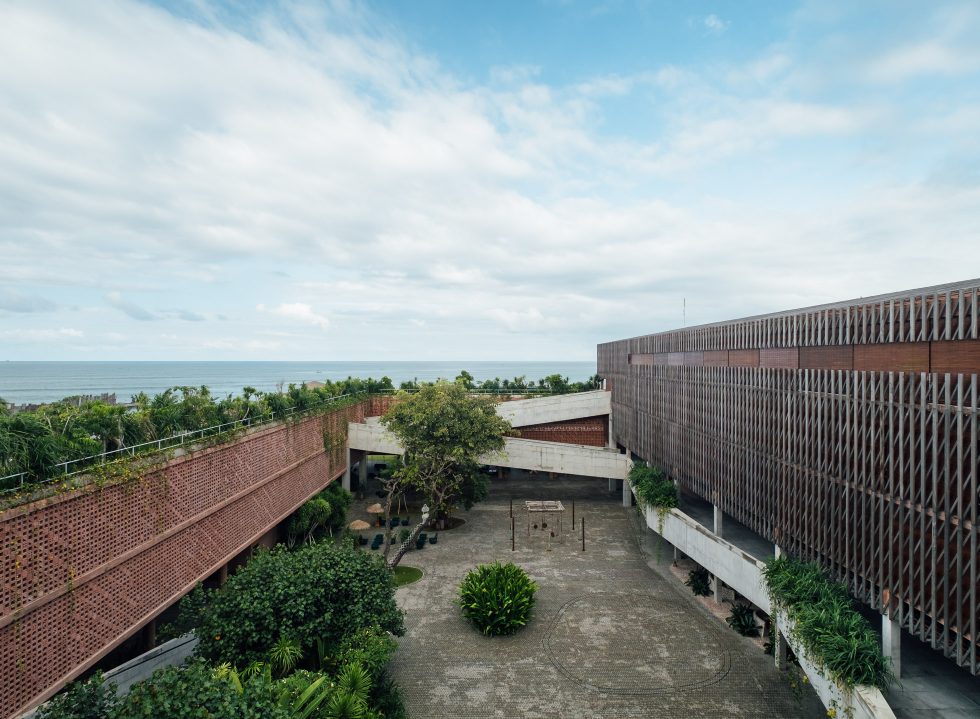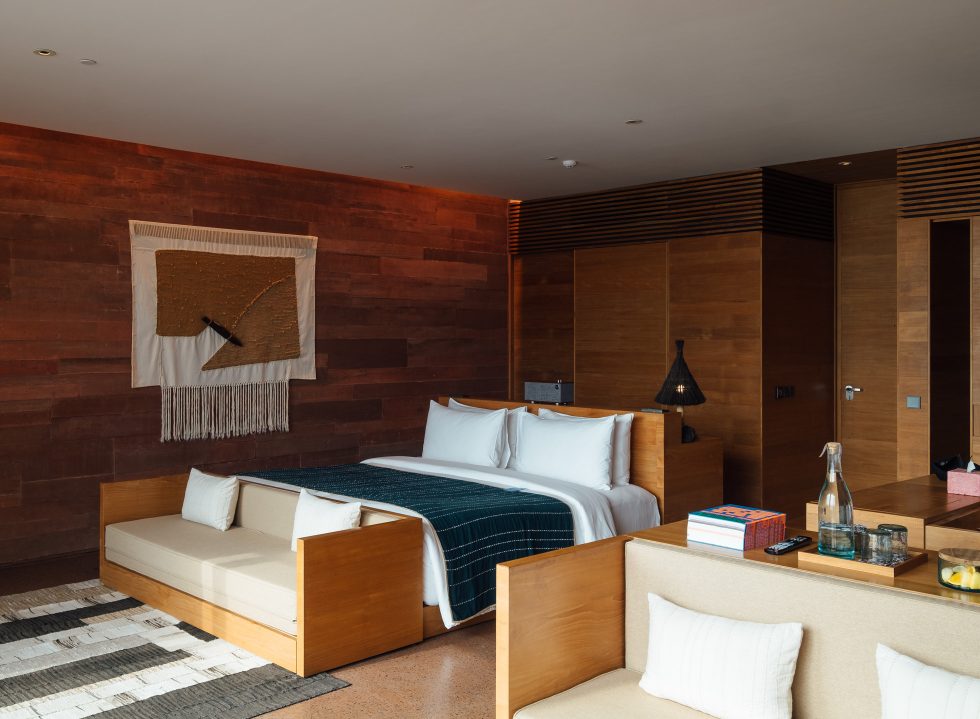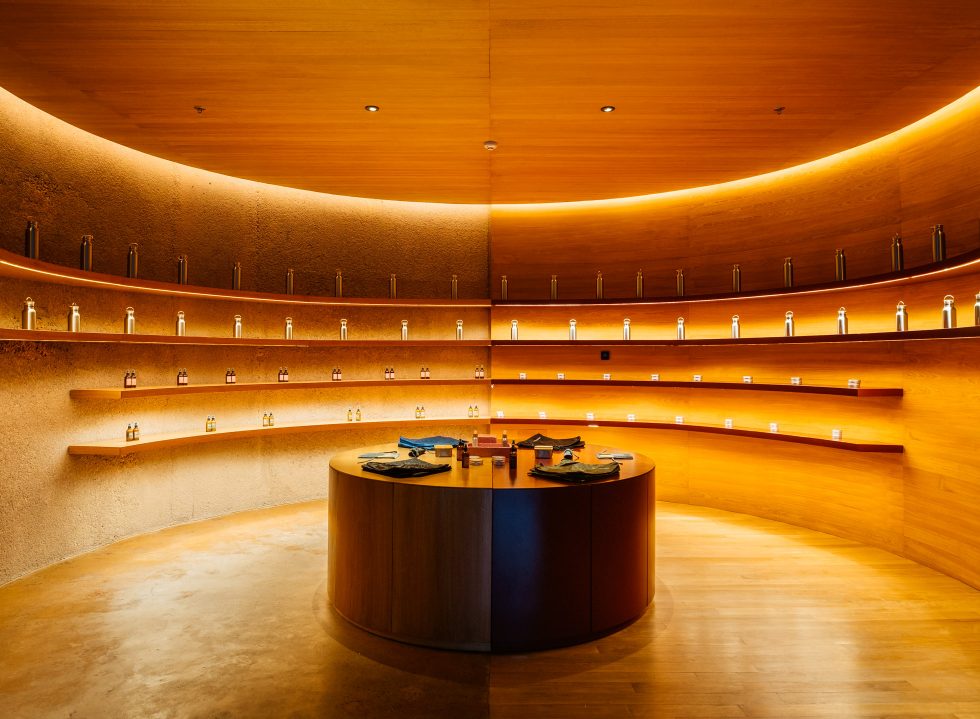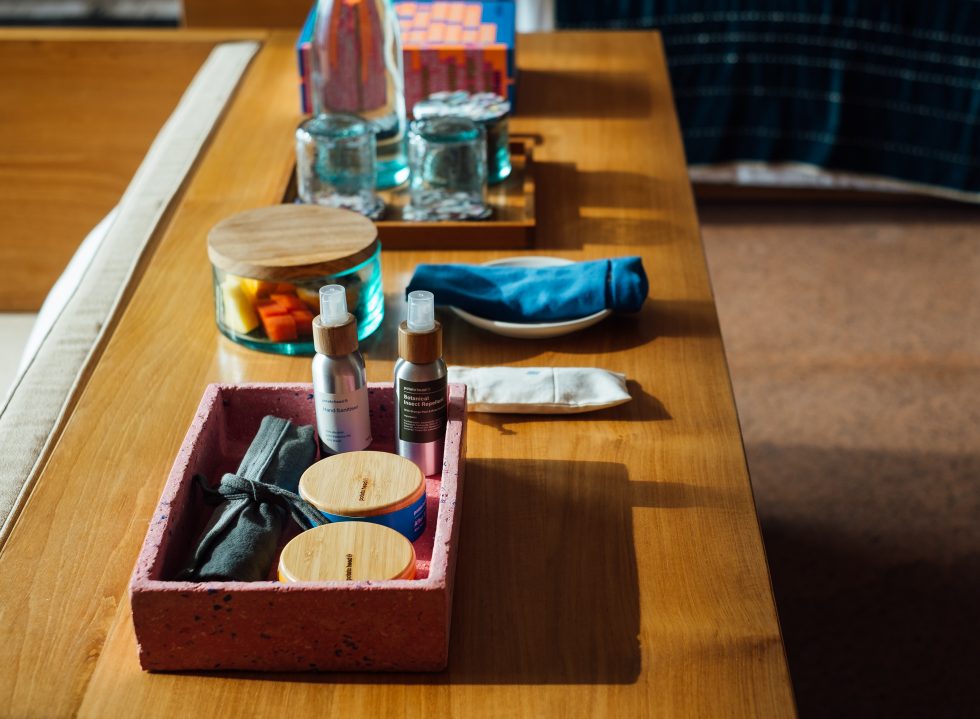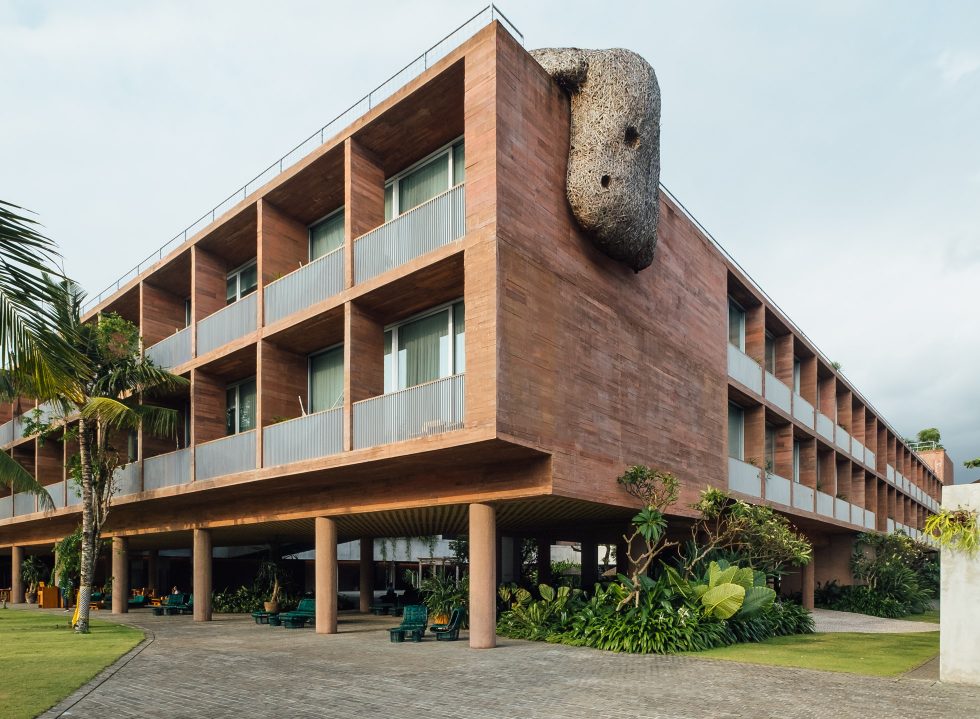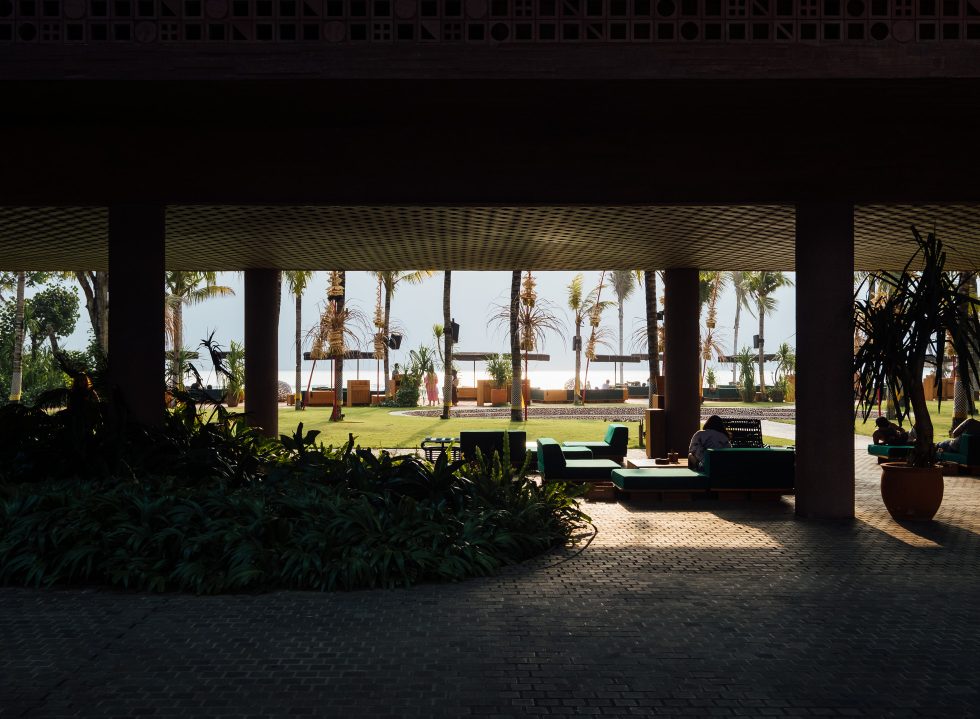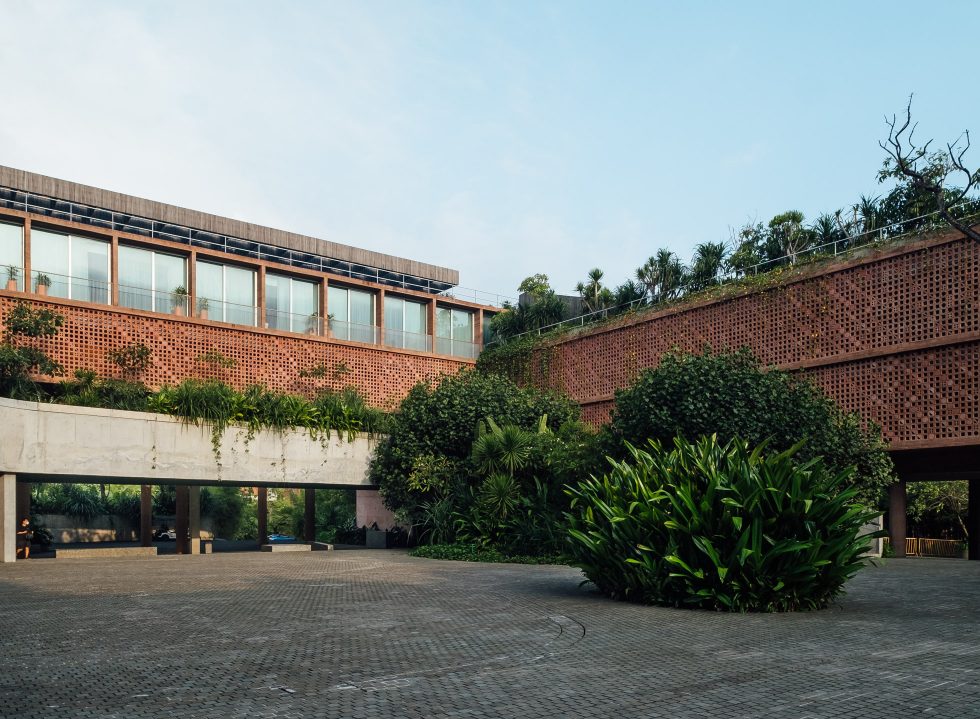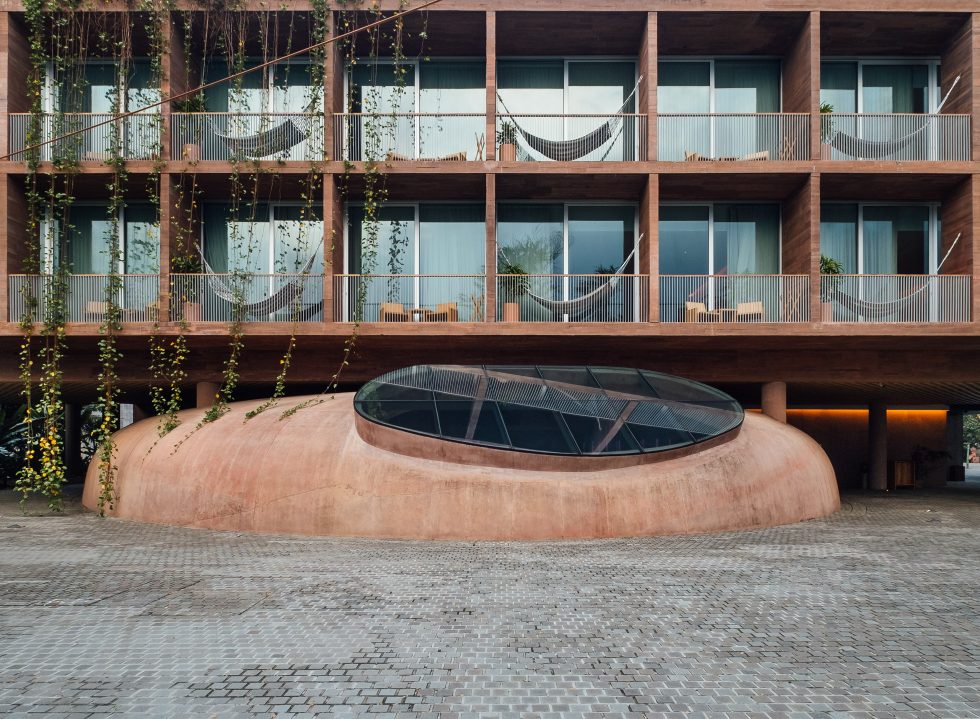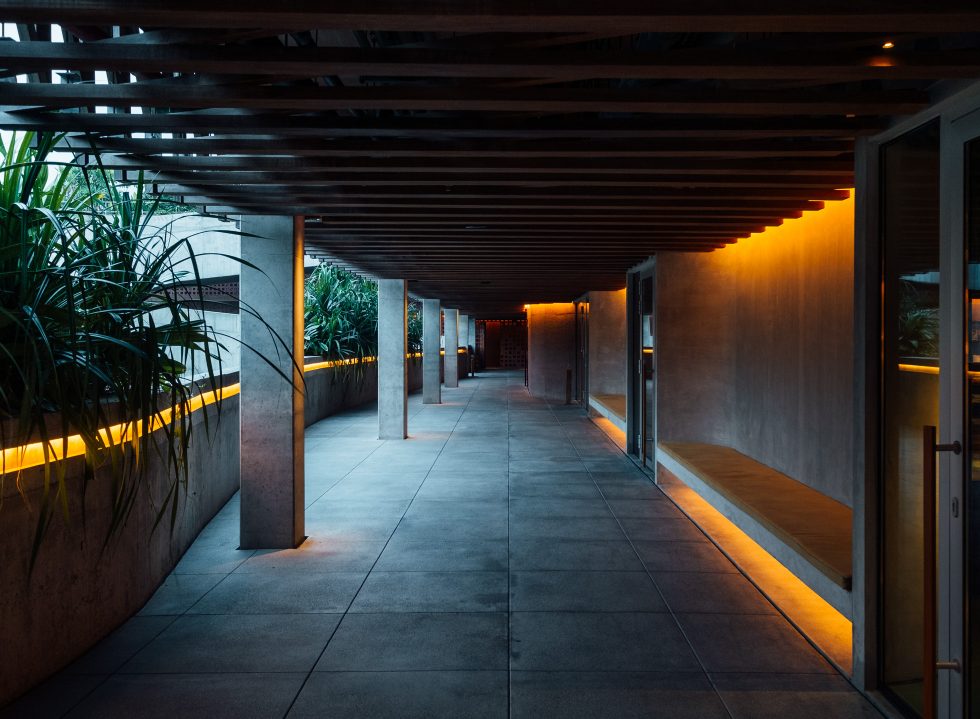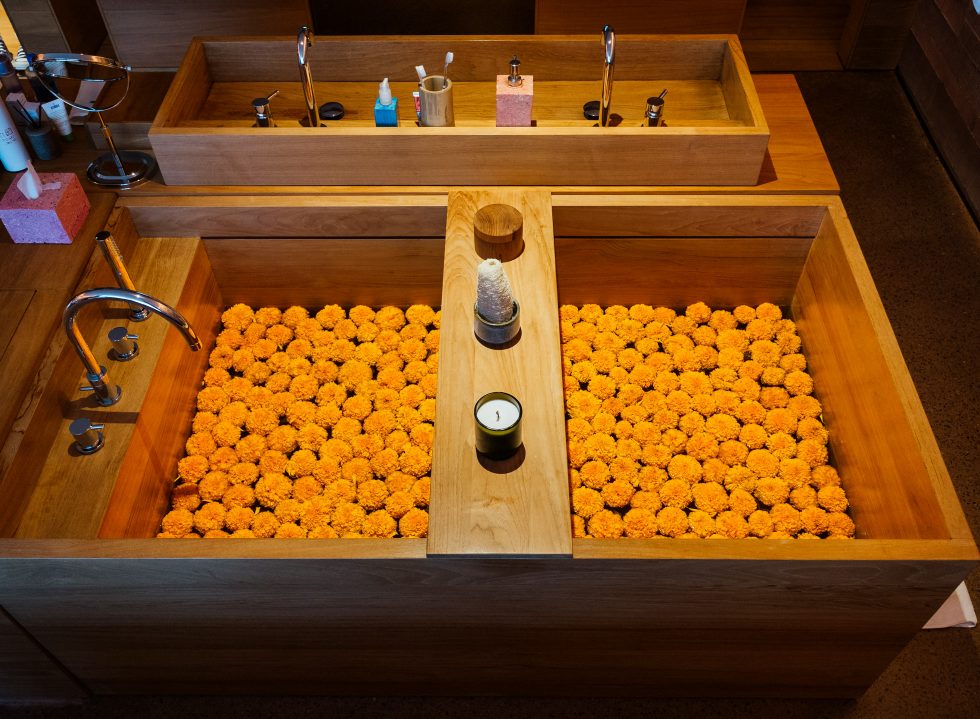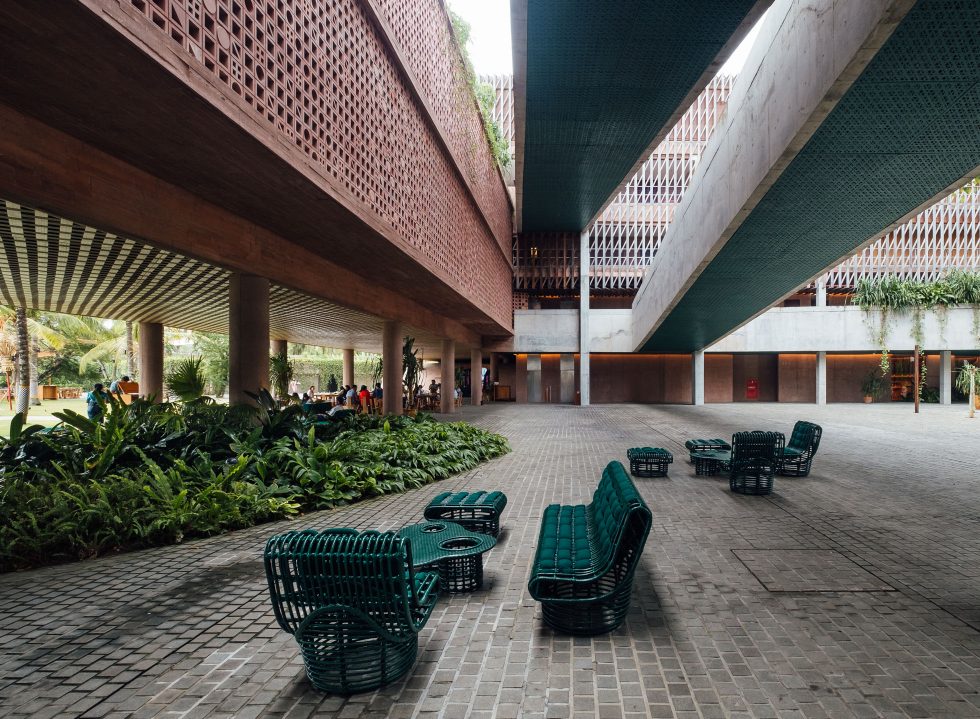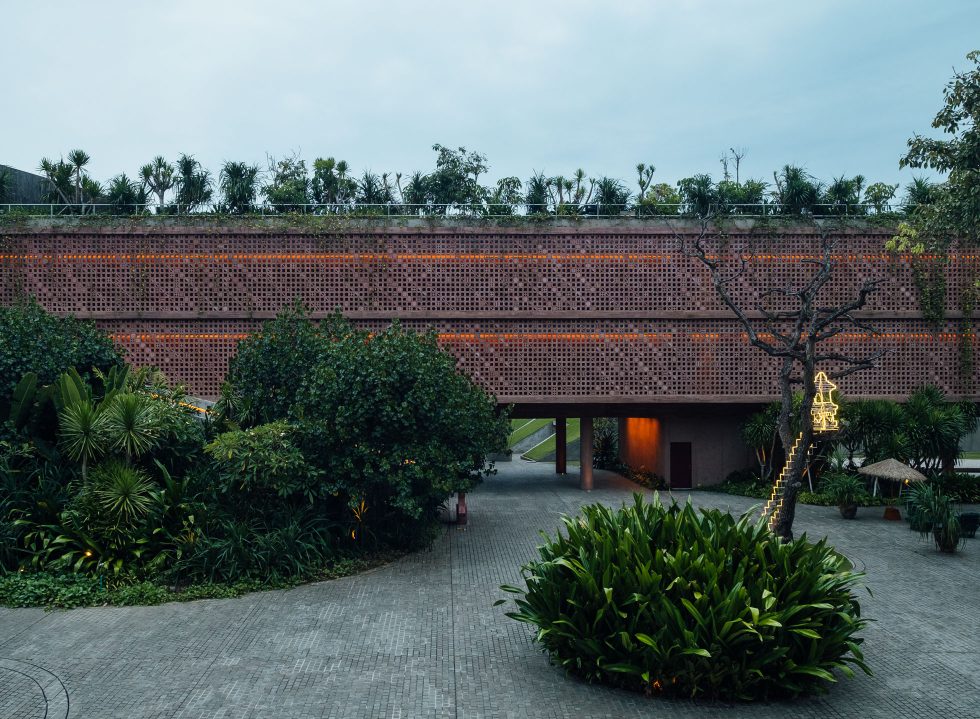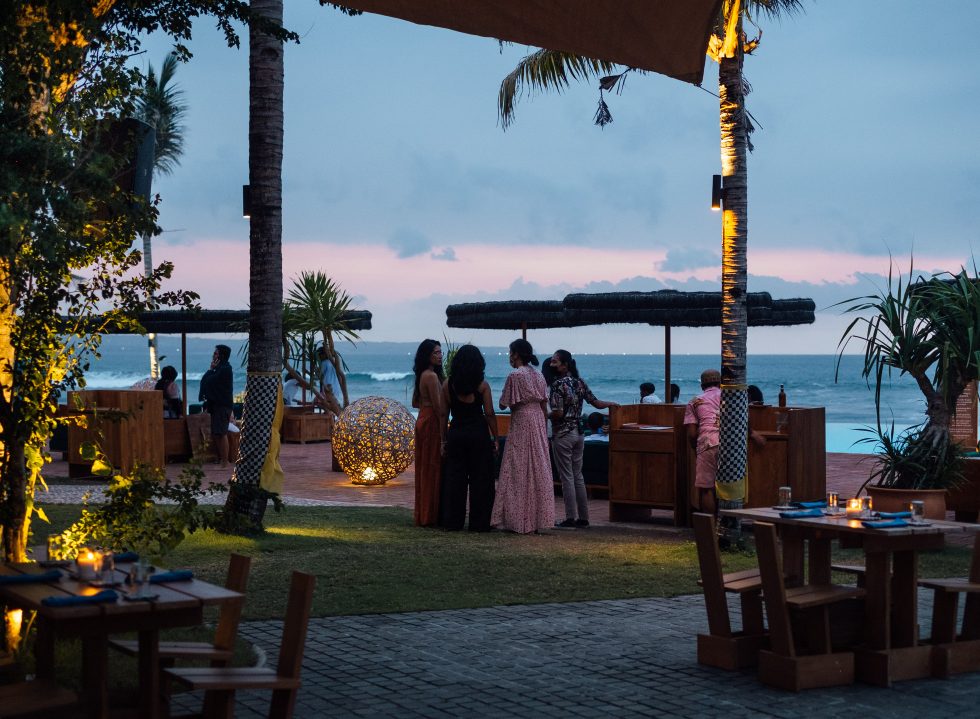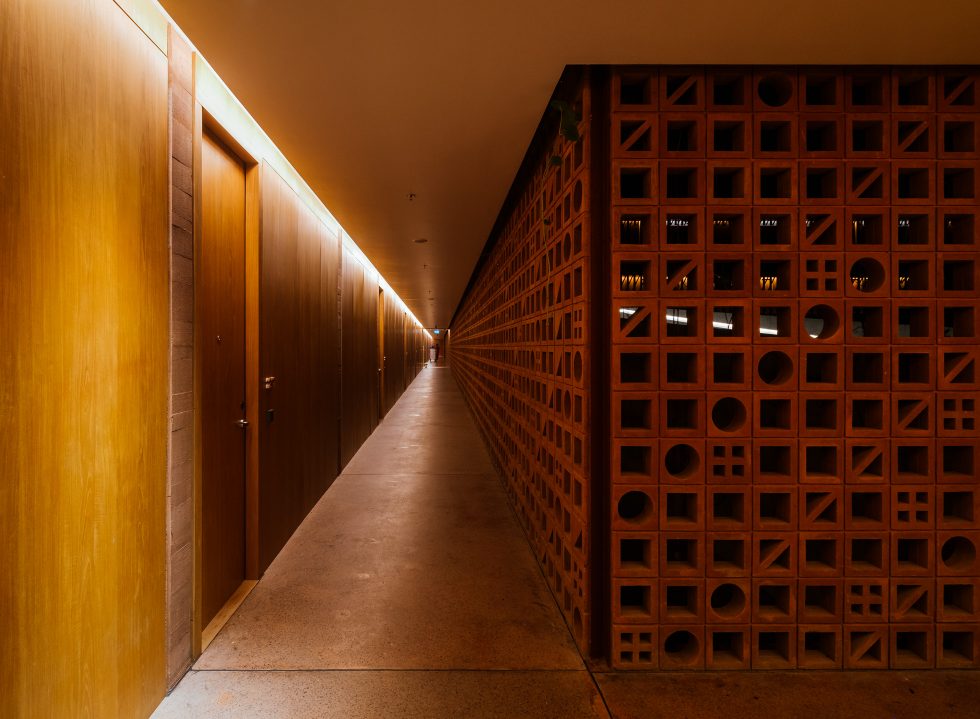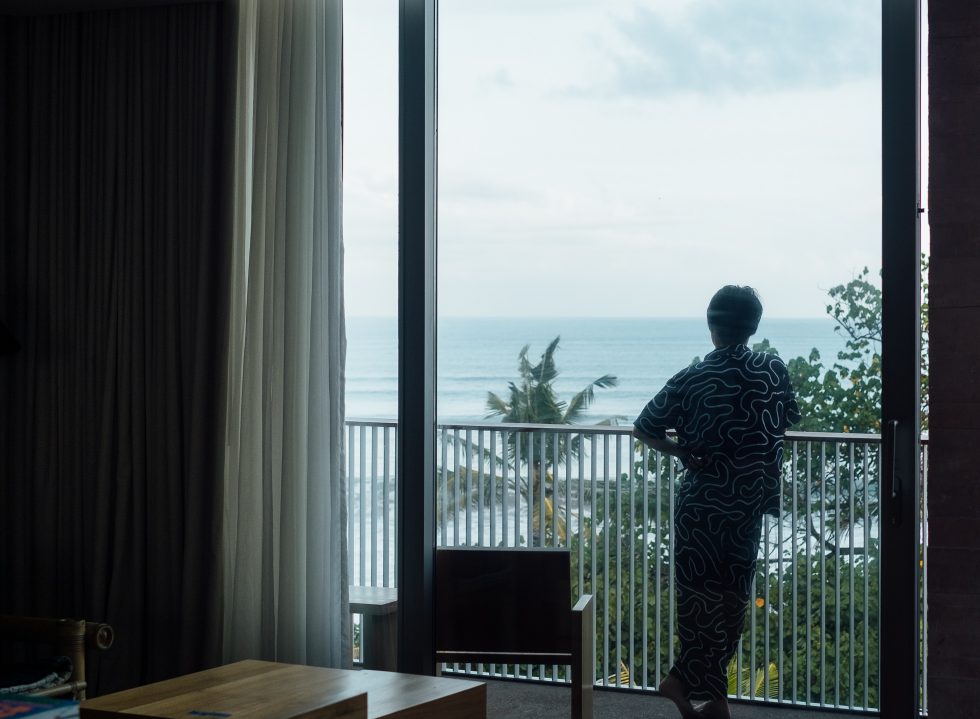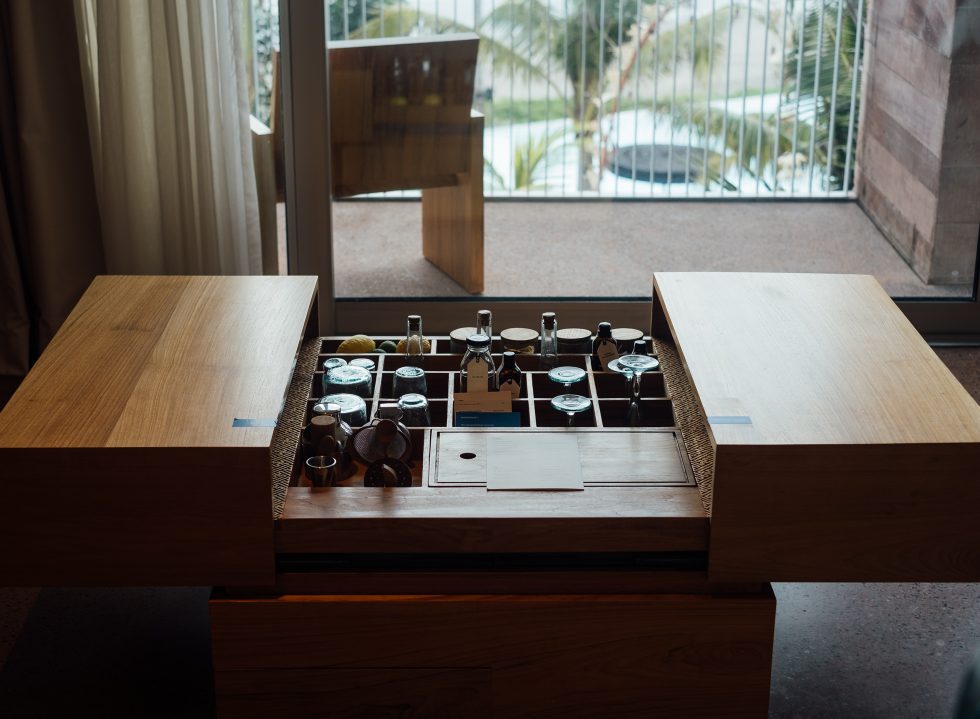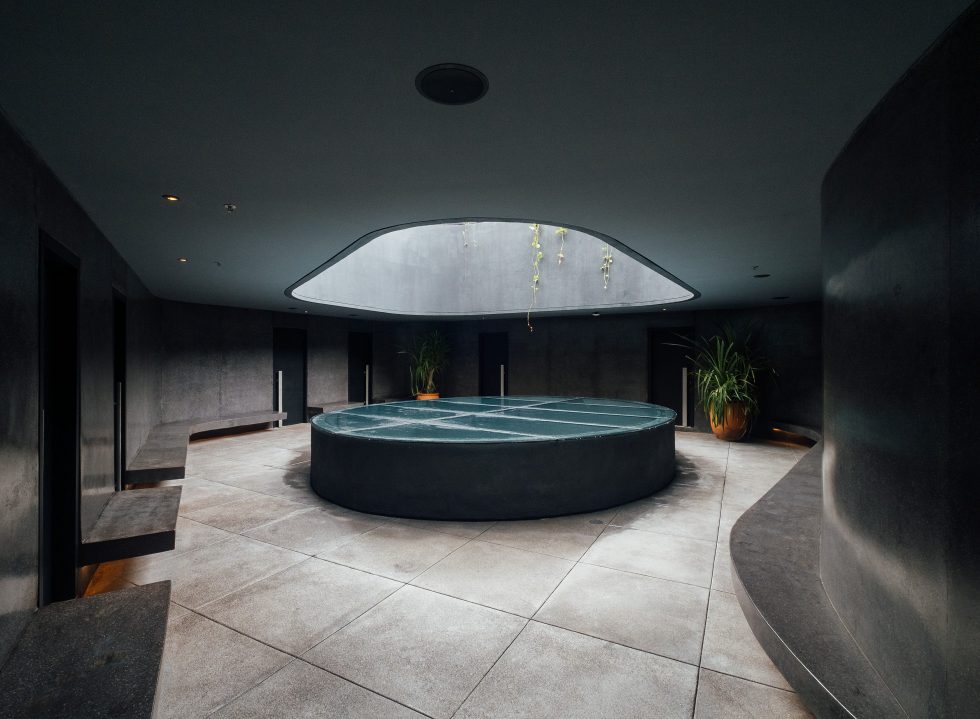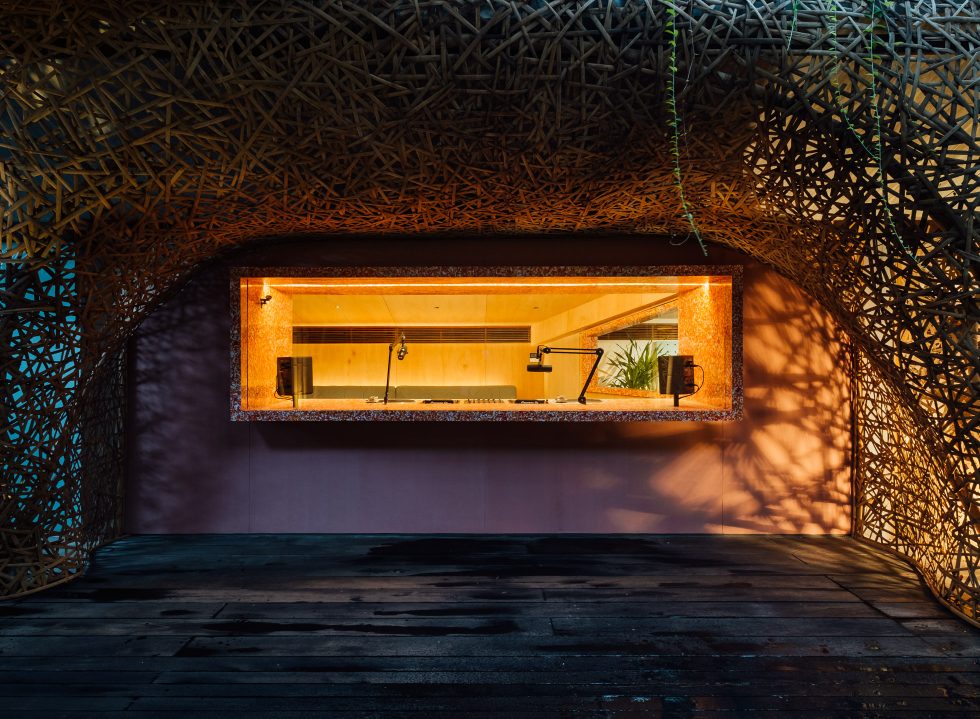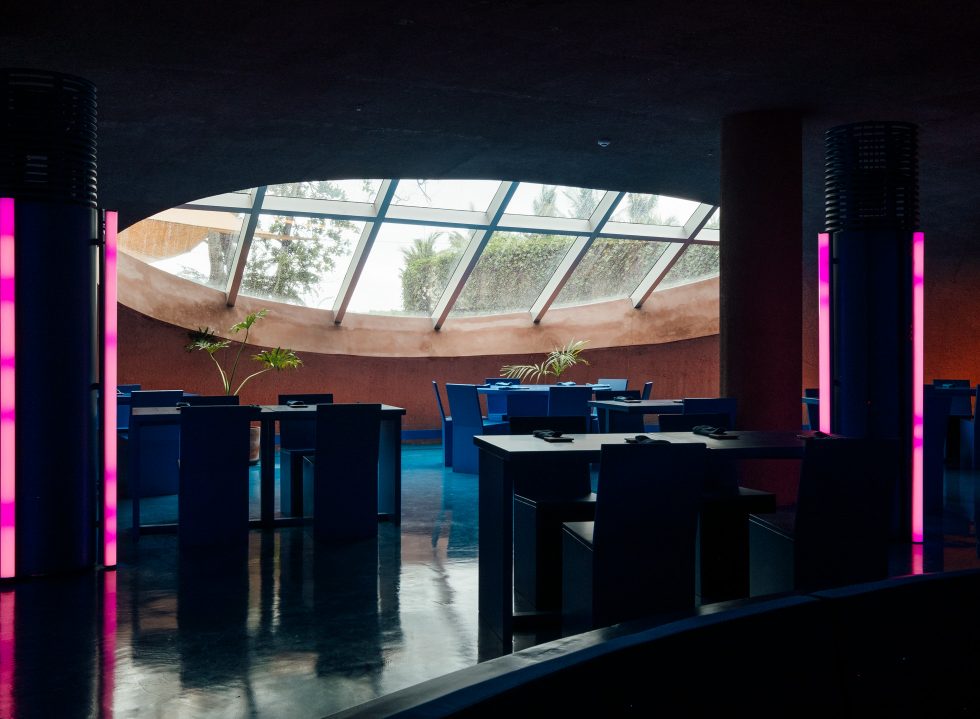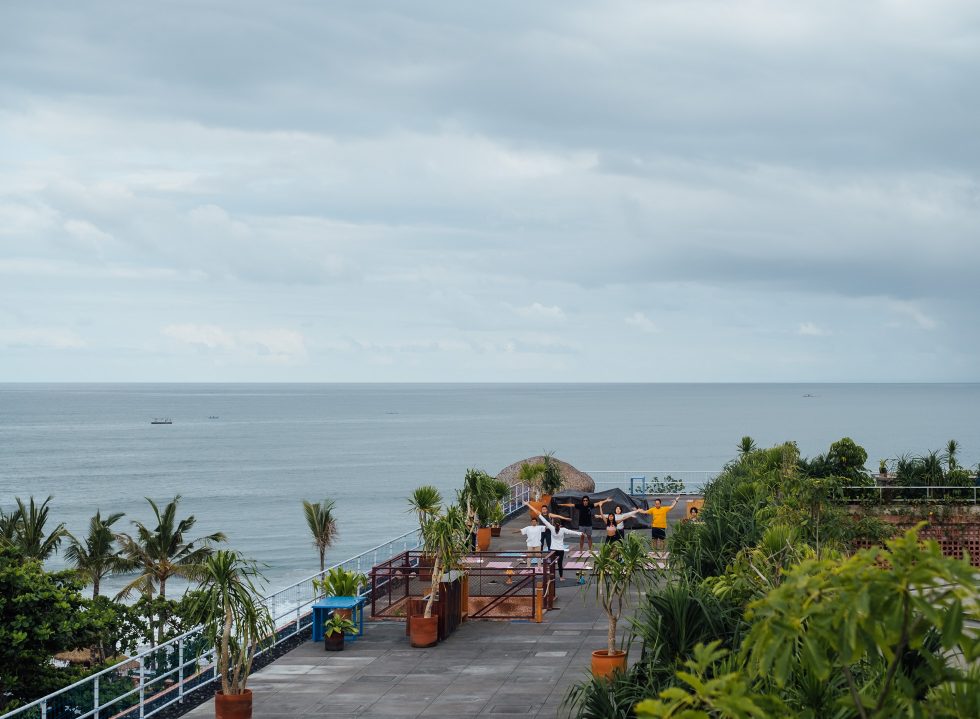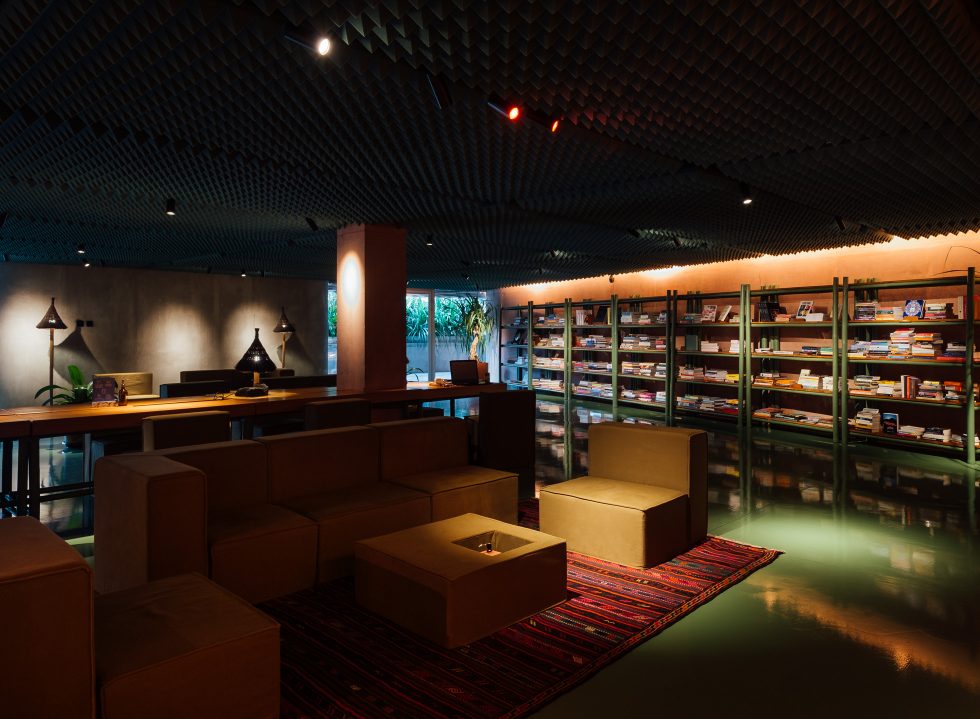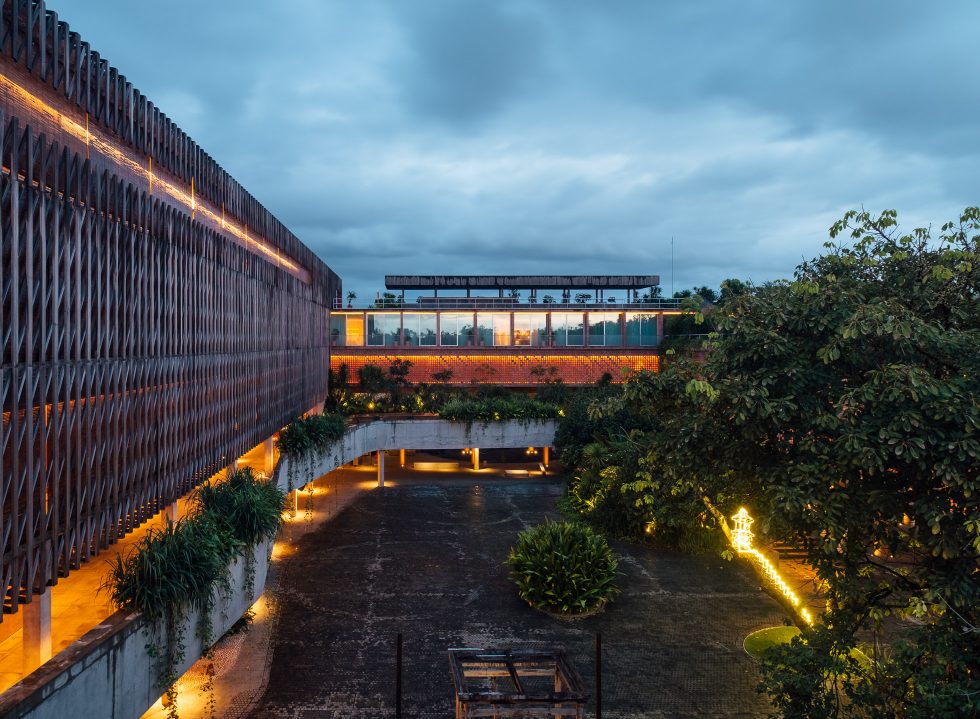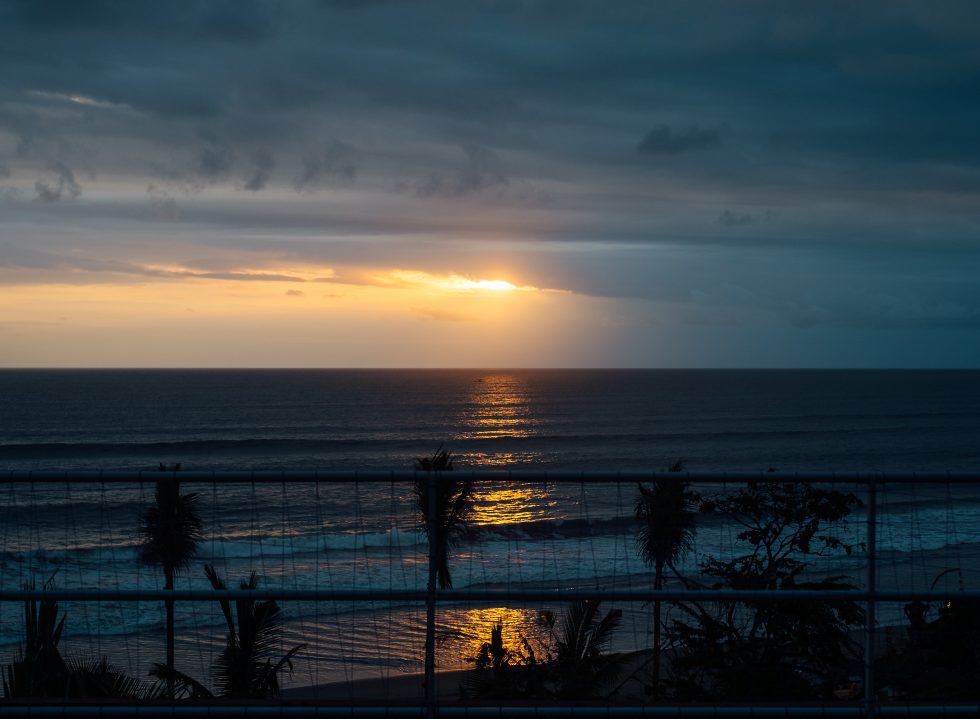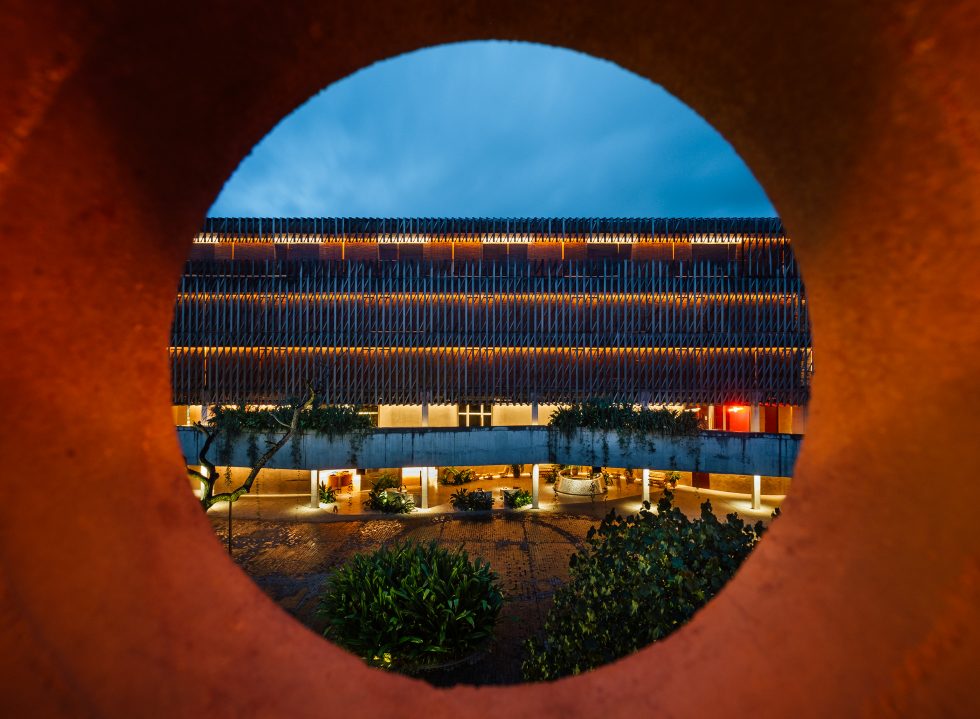The experience of luxury resorts usually begins at their grandiose lobbies, but not for Potato Head Studios. It’s not that the latest luxury resort to the creative compound of Desa Potato Head in Bali is missing one; from the get-go, they are just setting up expectations in a different way.
The experience effectively starts at the Circle Store. In this compact circular room, guests get to pick out a complimentary Potato Head stainless steel tumbler and a handsome reusable tote bag for themselves. This gesture immediately sets the foundation for the uniquely Potato Head experience and is a precursor to their mantra: “Good Times, Do Good.”
Spending your nights in Potato Head Studios means casting away the preconceived notions of luxury. Here, luxury takes on a different (and increasingly urgent) form. Designed by the renowned Dutch architecture firm OMA, the resort takes on a subtle approach to aesthetics, putting sustainability and regenerative hospitality at the forefront of its concept.
“There is a sustainable element in every part of the property.”
“There is a sustainable element in every part of the property”, said Fysh Liam, Head of Guest Experience. One need not look far. Inside the rooms, full amenities thoughtfully put together by the team are at the guests’ disposal: fully degradable slippers, bamboo chair by designer Max Lamb, rainbow-speckled trays made with recycled plastic waste and, most impressive of all, a Zero Waste Kit. The latter includes bamboo cutlery and ointment pots with refillable essentials (sunscreen, after-sun care, insect repellent and hand sanitiser).
“We want to encourage our guests to travel light,” as Fysh put it. But on top of that, the lightness also comes from this comforting sense that the resort is one step ahead when it comes to making sustainable decisions for the guests. Rather than flashy cards behoving you to care for the environment by reusing the towel or limiting water usage, in Potato Head, patrons can enjoy good times with ease, knowing that the resort will take care of each matter in the most sustainable way possible.
With that being said, Potato Head Studios has a discreet thoughtfulness that covers not only the experience and amenities but also the design of the room. Just take the Oceanfront Studio, for example. The masculine lines of the studio lead the eyes to the corresponding textures— eye-catching bathtub in smooth teakwood, a cube table that peels away to reveal an extensive in-room bar and a concrete wall cast in ironwood that resembles bricks from afar if you’re not paying close attention.
The deceptively simple and sparsely decorated room also allows the main highlight of the room to take centre stage: the Balinese sunset dipping into the horizon, complete with the soundtrack of crashing waves by the shore.
Trading exclusivity in for inclusivity.
A day at the resort can be spent soaking up the island vibe at the popular beach club, whiling the day away with good tunes and cocktails. Elsewhere, reserved guests can entertain themselves at the in-house library or take a leisurely stroll around the compound that resembles an open plaza with various public spaces (amphitheatre, gallery and music lounge). Sometimes it’s hard to distinguish between resort guests and walk-in guests, and this cross-pollination that inspires a sense of community is precisely the aim of Ronald Akili, the founder of Desa Potato Head.
For an establishment that is famously known for its impeccable taste and as the pinnacle of cool on the island of Bali (they also throw mean parties, by the way), it is also incredibly child-friendly. Children exist as independent beings alongside adult guests, immersing themselves in workshops that promote a circular future. “We have kids’ workshops led by our Sustainism team, like making bracelets from waste,” said Fysh.
It can be dispiriting to think that we’ve gotten to the point where children are now learning about the impact of waste at a young age instead of colouring picture books. Still, given the current climate, it’s precisely the uncomfortable conversation we need to have, and Potato Head isn’t afraid to go there.
“Good Times, Do Good” is an addictive feeling.
With the world slowly recovering from the onslaught of COVID-19, there is an optimism that things are finally returning to normal with borders reopening and tourism returning to business. But there’s also a disquieting sense that environmentalism will take a backseat in favour of economic recovery.
Therefore, Potato Head Studios’s (and Desa Potato Head as a whole) tireless push for sustainability and regenerative hospitality feels more relevant than ever. Besides the infrastructures at the resort, the establishment is committed to empowering the local economy through farming programmes that directly involve local communities, and they have also partnered with River Watch Activism to address marine debris and water pollution.
The result, at a glance, can seem like the total opposite of luxury. After all, luxury itself involves a certain degree of disconnection from reality. But over at Potato Head Studios, the harsh truth is seen as a catalyst for refinement. And where guests are effortlessly reeled into eco-movements in their experience at the resort, the vision of a circular future may have a lasting impact on the visitors who, once home, could be intrigued to revisit the one or two practices they’ve learned on sustainability. Indeed, “Good Times, Do Good” is an addictive feeling.
